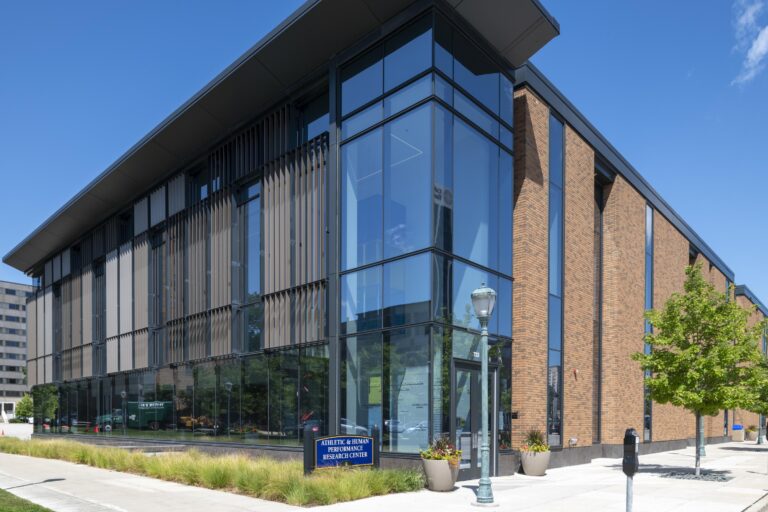As the world continues moving toward cleaner energy, one Marquette University professor is helping to lead the way.

Dr. Ayman EL-Refaie, Thomas and Suzanna M. Werner Endowed Chair in Secure and Renewable Energy Systems and professor of electrical and computer engineering in the Opus College of Engineering, received a $5 million Department of Energy grant to continue his research on hybrid and electric engines for aircrafts.
The grant will support a project to develop the next generation of electric-drive drivetrains. EL-Refaie aims to develop a light weight, high efficiency electric drivetrain to enable hybrid and electric propulsion of aircraft.
“We have designed an electric drivetrain system that includes a motor and a drive that achieves a specific power (power/mass) in the range of two to three times the state of the art,” EL-Refaie says. “We also built sub-components and are currently testing them.”
These motors and engines not only give more power to the aircraft, but they also lead to a significant reduction in fuel consumption and emissions—an innovation that can completely change the way we travel the world.
“It is expected that hybrid systems will be adopted for large commercial aircraft, while electric propulsion will be adopted for smaller aircraft for urban mobility as well as for unmanned aircraft,” EL-Refaie says. “As of now, all aircraft rely on jet engines which lead to significant fuel consumption and emissions. By moving toward hybrid and electric, this will have significant impact on reducing fuel consumption and emissions.”
Hybrid motors and engines drive separate propellers alongside the standard jet engines, while electric motors and engines drive only propellers.
EL-Refaie says the access he has had at Marquette to state-of-the-art facilities, software and help from the graduate students has been extremely beneficial to his work.
Phase one of the project is scheduled for completion at the end of February 2023. A two-year second phase aims to complete and test a full-scale drivetrain system.



